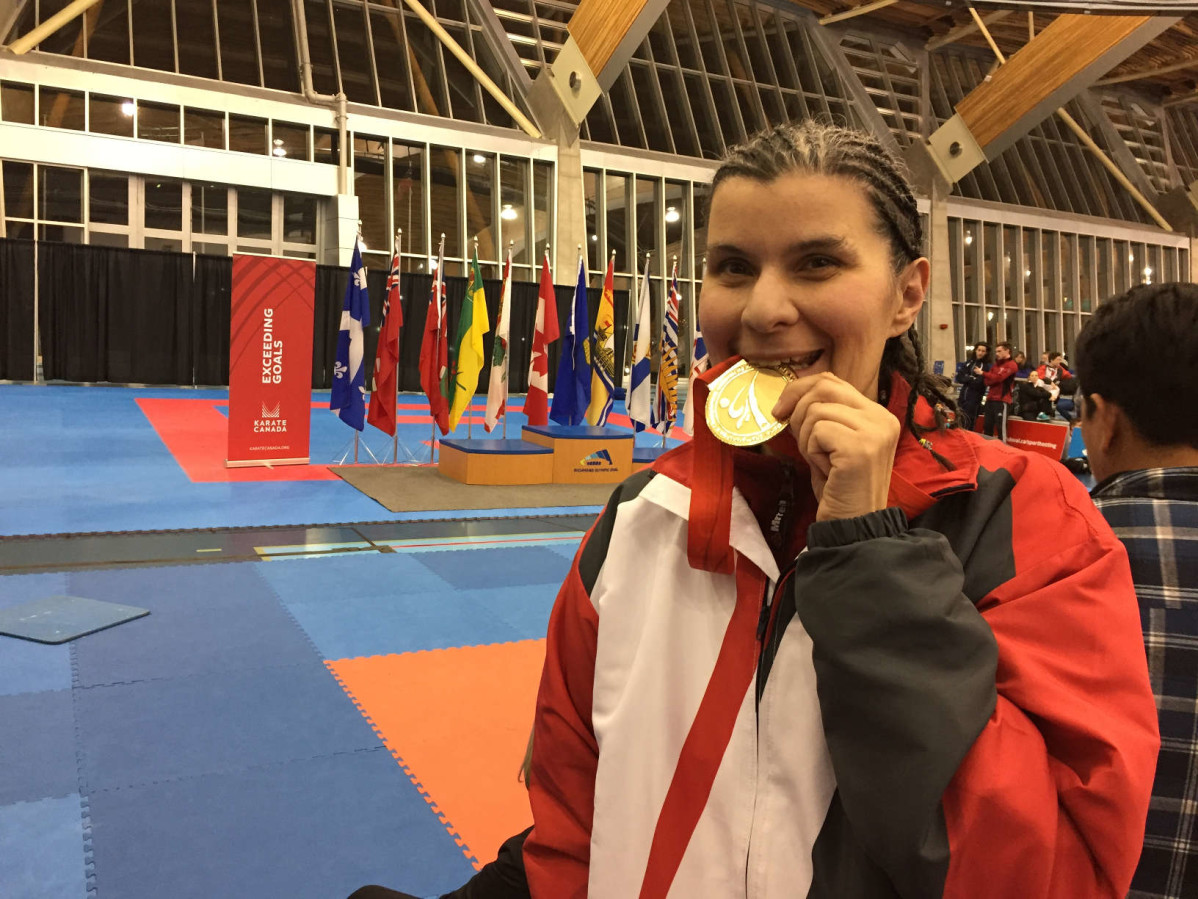Former George Brown culinary student wins gold at Karate Canada Nationals
“Don’t use or believe the word ‘can’t.”
Patricia Wright, a former George Brown College culinary arts student, and recent gold medal winner at Karate Canada’s national competition, knows about pushing through adversity to succeed. When she was poised to get her black belt Wright suffered a seizure so severe she was hospitalized.
“My sensei called and asked me where I was because I was supposed to be at the grading,” Wright said. “I remember trying to explain to him that I was in the hospital because I had a seizure.
Wright has had epileptic seizures since she was an infant, and is mostly at peace with her condition. “It’s part of me. I wish I didn’t have the seizures, but I don’t know life without them.”
Wright was riding her bicycle in 2010 when she was hit by a car. The incident left her with a traumatic brain injury. A year later, she was on the phone with her case-worker, who couldn’t understand what Wright was trying to say. Wright went to the hospital where it was determined that she had a stroke.
Wright’s conditions mean that the karate champ has a mobility device and a seizure-detection dog named Georgia to help her get around.
While many might be discouraged by the kind of adversity Wright has endured, the karate champ shows flashes of the mental toughness that helped her take the gold. For Wright, the bicycling accident which left her with a severe brain injury, was actually auspicious. Without it, Wright “wouldn’t have had the opportunity to go to nationals,” she said.
Wright took home gold in her category, athletes competing with a physical disability or visual impairment, at the nationals in Richmond, B.C. in January. In the championship match, Wright edged out a win over British Columbia’s Neil Surry with a score of 24.9-24.8.
The win was extra sweet, because Wright thought she lost before the competition began for accidentally bumping into a referee.
“I initially thought that I was disqualified,” said Wright. Thinking that she wasn’t going to have a chance to compete, she said she was extremely disappointed in herself but was still trying to encourage Surry. When she was called to the mat to compete, she had to put her game face on.
“She’s so determined to succeed it’s not even funny,” said Heather Fidyk, chair of Karate Canada’s athletes with a disability (AWDA) program.
The next battle ahead for Wright, will be convincing the World Karate Federation to include her AWDA category in its international competition. Fidyk thinks that this year’s world championship in Austria is unlikely to include a category for Wright and other athletes with physical and visual limitations, but Fidyk plans to go to the worlds and make the case to broaden the competition categories.
For Wright making the worlds at nearly 40 years of age, “would be incredible, it would be a dream for me.”



